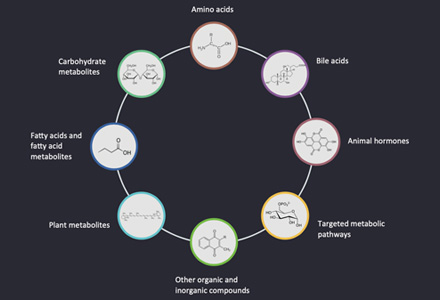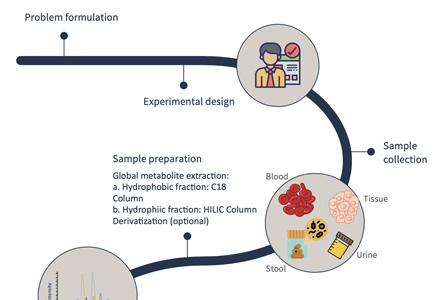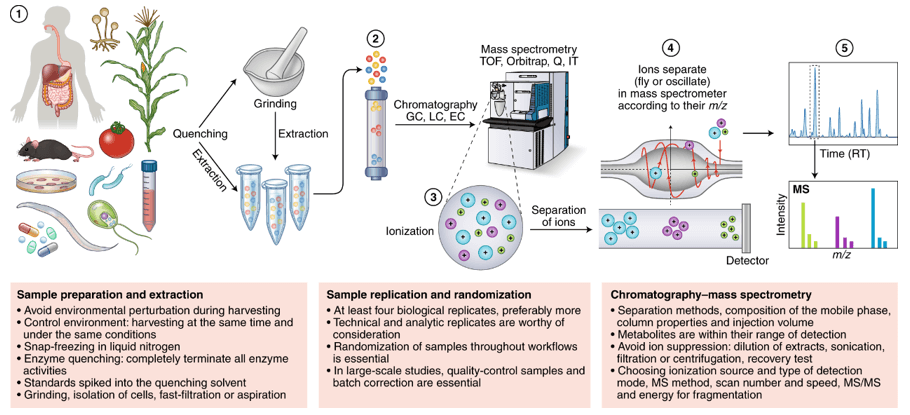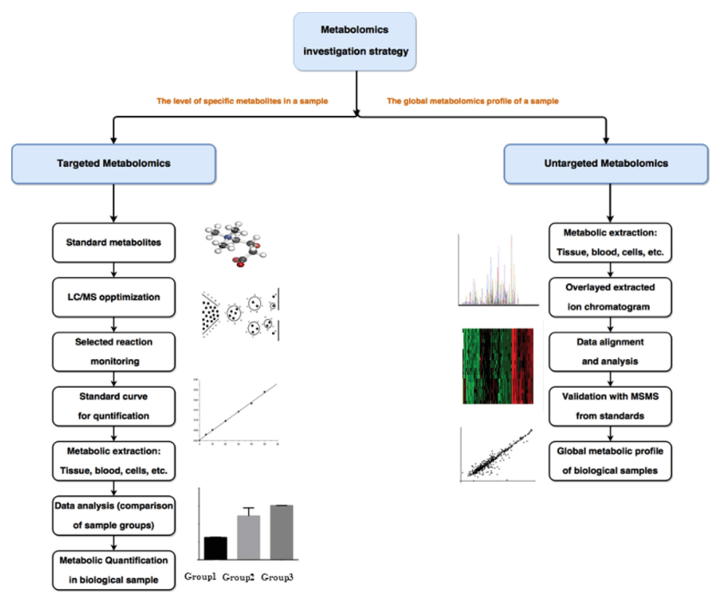Overview
Urine is composed of 95% water, organic compounds, electrolytes and metabolites, which intensively reflects the metabolic processes that occur throughout the body and a wide range of metabolites. The non-viscous and non-invasive nature of urine and its lower protein and lipid content compared to other biological fluids make urine irreplaceable for disease diagnosis and biomarker screening in metabolomics.
However, urine contains an extremely wide range of chemicals, not only mammalian and microbial metabolites, but also drugs, contaminants and even industrial chemicals that may be present in urine, making sample pre-processing and subsequent data analysis in urine metabolomics more complex.
Creative Proteomics has built a metabolomic analysis platform for urine samples using high-resolution mass spectrometry. We will use the appropriate sample pretreatment protocol for your experimental purposes, significantly improving the accuracy of urine metabolite identification and quantification of metabolites.
What We Can Provide:
Untargeted metabolomics analysis:
- Metabolic profile analysis
- Screening for differential metabolites
- Metabolic pathway analysis of differential metabolites
- Discover new biomarkers
 Fig 1. The workflow of untargeted metabolomics analysis
Fig 1. The workflow of untargeted metabolomics analysis
Targeted metabolomics analysis:
- Mode: SRM / MRM
- Analysis content: Standard curve creation. Raw data preprocessing. Absolute quantification of metabolites.
 Fig 2. The workflow of target metabolomics analysis
Fig 2. The workflow of target metabolomics analysis
Sample Requirements
The collection of urine samples for animal experiments is recommended to be performed through metabolic cages. It is worth noting that residues of feed may contaminate the urine, evaporation of urine affects the volume recording, and microbial contamination may cause degradation of products. Therefore, the effects of food, collection time and collection containers should be fully considered in urine sample collection.
Sodium azide (0.05% to 0.1%) and boric acid are commonly used bacteriostatic agents that can be added to urine samples to prevent the degradation of metabolites caused by microbial action. It is recommended that appropriate amounts of bacteriostatic agents be added to urine samples that require longer transport times.
Urine samples are usually processed in different ways depending on the purpose of the experiment. If non-targeted analysis is required, the urine sample processing method should be fast, simple and reproducible. The processed sample should contain a variety of unknown metabolites and retain the sample as intact as possible. Therefore, urine samples are often processed by dilution or protein precipitation. If targeted analysis is required to study specific metabolites, more emphasis is placed on extraction efficiency. Urine samples can be processed by various extraction methods, which are more efficient and faster. For example, solid phase extraction can extract phenolic metabolites from urine, etc.
After sampling, you can either pre-treat the sample or leave it to us, you are welcome to contact us.
Deliverables
- Experimental procedure
- Parameters of liquid chromatography / gas chromatography and MS
- MS raw data files and MS data quality checks
- Bioinformatics analysis report
Turnaround time: 1-4 weeks
Bioinformatics Analysis
| Standard analysis | 1. Data quality control (QC correlation analysis, PCA analysis of total samples) |
| 2. Qualitative and quantitative results of metabolites |
| 3. Differential metabolite screening (PCA, PLS-DA dimensionality reduction treatment, volcano map) |
| 4. Differential metabolite analysis: Venn diagram, cluster heat map, metabolite correlation analysis, Z-score analysis, pathway analysis, ROC analysis |
| Personalized analysis | Weighted gene co-expression network analysis (WGCNA) |
| One way ANOVA |
Creative Proteomics provides metabolomics services for urine samples, and will deliver accurate and detailed data and analysis reports to you. If you want to detect other metabolites but have not found them, you can tell us through the inquiry form, and our technicians will communicate with you.
For Research Use Only. Not for use in diagnostic procedures.


 Fig 1. The workflow of untargeted metabolomics analysis
Fig 1. The workflow of untargeted metabolomics analysis Fig 2. The workflow of target metabolomics analysis
Fig 2. The workflow of target metabolomics analysis


